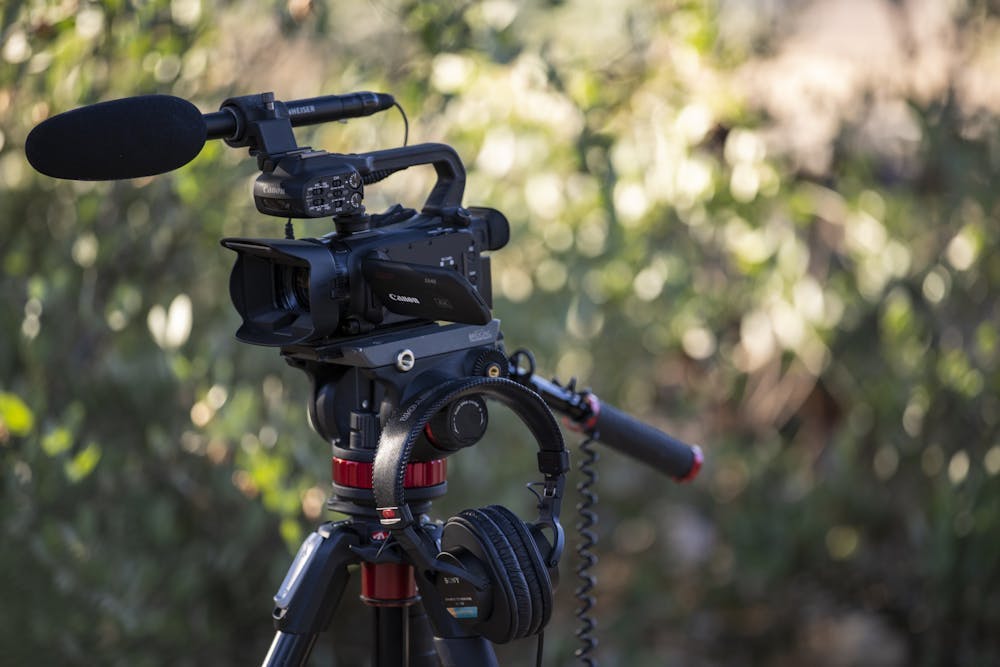The Kaleidoscope binational film festival is accepting short film entries through Aug. 16 for its second annual contest, bringing together filmmakers, critics and adoring film fanatics for a one-of-a-kind artistic experience.
Kaleidoscope is presented by ASU, Universidad de Guadalajara and the Mexico Institute at the Wilson Center. The hosting institutions work to celebrate unity: specifically, the more than 200 years of diplomacy between the United States and Mexico.
"A lot of times, when you think of the United States and Mexico, you only think of the borderlands," said Peter Murrieta, the deputy director of The Sidney Poitier New American Film School. "This contest got us the opportunity to see short films about a mom who works in Wisconsin selling Mexican food to dairy farmers. It got us to see all different sides of that, and to understand the relationship, you've got to understand all the pieces."
Last year's grand prize winner, University of Wisconsin graphic design student Miguel Barrios, made "My Hero, My Mother" for a homework assignment. He submitted it to the film contest and was later flown out to a ceremony in Washington, D.C. where he was awarded a grand prize of $5,000, according to the Wilson Center.
This year is the second year of the festival after a successful inaugural run last fall in four different locations. The festival's initial goal was to "honor all sorts of stories about everyday life that capture the presence of the neighboring country within our own, and within our lives," according to Kaleidoscope's website.
The name "Kaleidoscope" is reflective of the festival's inclusive goals. The 2023 festival's call for submissions instructed participants to "think expansively about the relationship between our two societies and how it manifests itself in your world" in order to "aim for a truly diverse and inclusive kaleidoscope."
Taylor Blackmore, the communications program coordinator for The Sidney Poitier New American Film School, helped to promote the event and feels enthusiastic about its future.
"I'm the most excited for our students to start thinking about stories that they can tell and art that they can create on a global impact level," Blackmore said. "Beyond the walls of the University, as they go out into the world, the scale at which they can tell stories is limitless."
This year's theme is "community," an homage to the joint relationship between Mexico and the United States, with the goal of strengthening international bonds through filmmaking.
The festival stays true to its community values, welcoming applicants of all sorts in its submission rules. Applicants do not need to be students — in fact, they aren't even required to be filmmakers. People of all ages, skill sets and nationalities are encouraged to participate.
Films can be between two and 12 minutes long and aren't expected to be shot on a professional film camera. They can be as casual as a TikTok shot on an iPhone according to Isabel Migoya Iriso, the senior coordinator of Convergence Lab at ASU's Office of University Affairs.
Each film is judged based on the theme more so than the film style itself. The contest hosts a wide array of judges, from politicians and professionals to actors and filmmakers.
Last year's judges included politicians who understand the bilateral relationship between Mexico and America, like former U.S. Ambassador to Mexico Roberta Jacobson and former Governor of Florida Jeb Bush.
Additionally, 2023's judges included big names in the film industry like director Everardo González and director and actress Gigi Saúl Guerrero.
There are some new faces on the panel of judges this year, like production designer Eugenio Caballero, author and screenplay writer Daniel Krauze, and actress Dolores Heredia.
In addition to film industry members, judges include political analyst Carlos Bravo Regidor and Roberta Jacobson, who is back for her second year.
This year's wide range of judges from both Mexico and America perfectly encapsulates the contest's commitment to diversity and theme of unity.
"We feel that the whole purpose of our office is that we see Mexico as more than just a partner," Migoya said. "It is part of our community."
Edited by Andrew Dirst, Sophia Braccio, Alexis Heichman and Alysa Horton.
Reach the reporter at ebmosier@asu.edu and follow @eleribmosier on X.
Like The State Press on Facebook and follow @statepress on X.
Eleri is a senior studying interdisciplinary studies, english and sociology. This is her third semester with The State Press. She has also worked in retail.




